What would a Labour super majority mean for the UK?
“We would argue that you don’t want to have somebody receive a super- majority,” he said. His concern was that Sir Keir Starmer’s victory could be so complete that his power would be “unchecked”, ultimately undermining democracy. A decade of Labour rule could be on the cards.
The message is being reinforced on social media. In the past two days the Tories have sent out four different Facebook advertisements to tens of thousands of voters warning against handing Starmer a “blank cheque”.
The change in strategy was, according to one Tory insider, a “break glass” moment, which leads to the inevitable question: have they given up? Is the strategy, as one cabinet minister put it, now one of “damage limitation"?
From the moment he called the election Sunak’s campaign has been mired in problems from all sides. The prime minister’s gamble in going early had been that the “crucible” of the campaign would encourage people to engage with his policies and ideas as he set out his vision for the future.
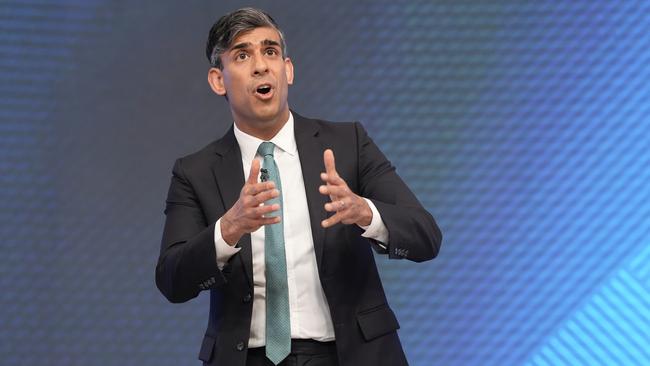
There is little evidence at present that voters are listening. With poll after poll showing that Labour retains a 20-point lead, the Conservatives felt that they had no choice but to change tack.
Even Jeremy Hunt, the chancellor, has admitted that he will struggle to hold the redrawn Godalming & Ash constituency in Surrey, although he said it was “bad feng shui to start planning the life you don’t want to have”.
The Tory plan is to target voters who are considering backing the Liberal Democrats and Reform. “The problem we have is that former Tory voters who are saying they will vote for Reform are not moving back to us,” a senior campaign source said. “Even before [Nigel] Farage came back they were stuck – now they definitely are.”
In the wake of Sunak’s decision to return early from D-Day commemorations, the atmosphere in campaign headquarters is said to be “dire”. “Morale has collapsed,” one insider said. “There’s a huge amount of mistrust.”
While Sunak insists he is not throwing in the towel – he said he is “absolutely not” giving up – others in the Conservative Party admit that the new approach is a tacit acknowledgment that it is heading for defeat.
“It’s not going well at all and people just sound beaten,” a strategist said. “The strategy had been to hope that the polls narrowed and then warn voters of the danger of a hung parliament. But that’s just not credible any more.
“No one in the campaign team believes we’re going to come close to winning. A great result for us is if we can get 200 seats. I don’t know anyone who wouldn’t bite your hand off for between 180 and 200 seats.”
The Tory attack will pivot on the idea that, as Sunak put it, Labour is preparing to “change the rules” to cement power. The Labour manifesto will include a pledge to extend the vote to those aged 16 and 17. Given that young people are more likely to vote Labour, this is seen as part of a strategy to secure a decade in office.
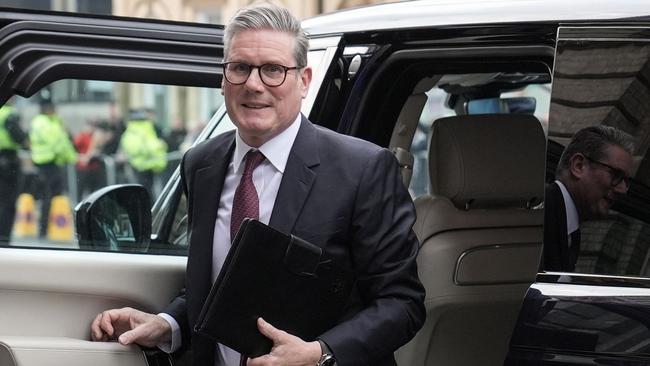
The Tories say that a super-majority would be challenging on two fronts. First, they argue, it would damage democracy. If Labour secured the 490 seats forecast in a Tory ad, they would technically have enough MPs to split off a group to form the opposition.
More realistically, a big Labour majority would mean the Tories were given fewer opportunities to scrutinise the government in parliament. Chairs of select committees, for example, are allocated to parties according to their number of seats, and a rump Tory party would be given only a handful, denying them a powerful platform.
It would also impose severe financial limitations. Opposition parties receive state support, allocated on the basis of seats and vote share. Labour, which had 205 seats at the end of the last parliament, received pounds 7.7 million in short money. If the Tories won fewer than a hundred seats they would get less than half this sum.
The second argument is the “blank cheque” attack. The Tories say Starmer would use a landslide majority to pursue his vision of a “socialist” state, raising taxes, easing border controls and pursuing a closer relationship with the European Union – the very issues that Reform voters are concerned about.
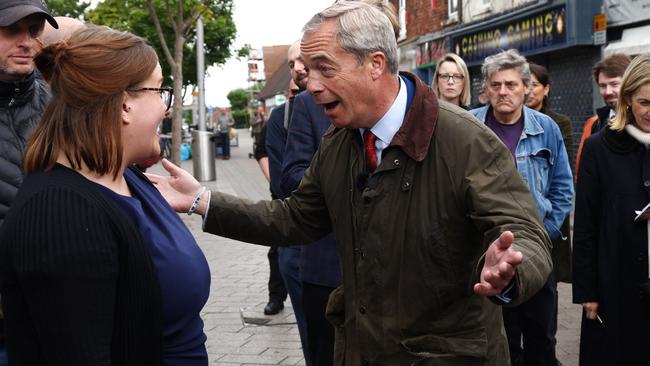
A campaign source said: “We need to win them [Reform voters] back. If they realise Labour with a huge majority would do all sorts of left-wing radical stuff, like votes at 16 and closer ties to the EU, then they are more likely to give their vote to us, and realise that a vote for Reform will be wasted as they will just usher in a more left-wing country.”
Professor Sir John Curtice, the polling expert, said the tactic might prove to be ineffective: “It’s very difficult to persuade people to vote for you because you are concerned you won’t be an effective opposition.” he said.
Lee Cain, Boris Johnson’s director of communications and founder of the PR agency Charlesbye, said “As a political strategy, it is a high-risk move. Telling your voters they are on the losing team will usually depress turnout. Also, while the public are not overly enthused about a Keir Starmer premiership, they are not concerned about him in the way voters were about Jeremy Corbyn.”
This appears to be backed up by some early polling by the consultancy Public First. It found that 13 per cent of people who voted Conservative in 2019 would like to see the party lose every seat and less than half were worried at the prospect of a complete wipe-out.
Some candidates already appear to be distancing themselves from the national campaign. Earlier this week the candidate in Tunbridge Wells published a leaflet apologising for “poor policies, worse implementation” since 2019. Dame Andrea Jenkyns, the candidate for Leeds South West & Morley, went further, using a picture of her with Farage at his 60th birthday, in which she called him “a true patriot, conservative to the core”. Her defence was blunt: “All conservatives must be prepared to come together to prevent a socialist super-majority.”
The Times

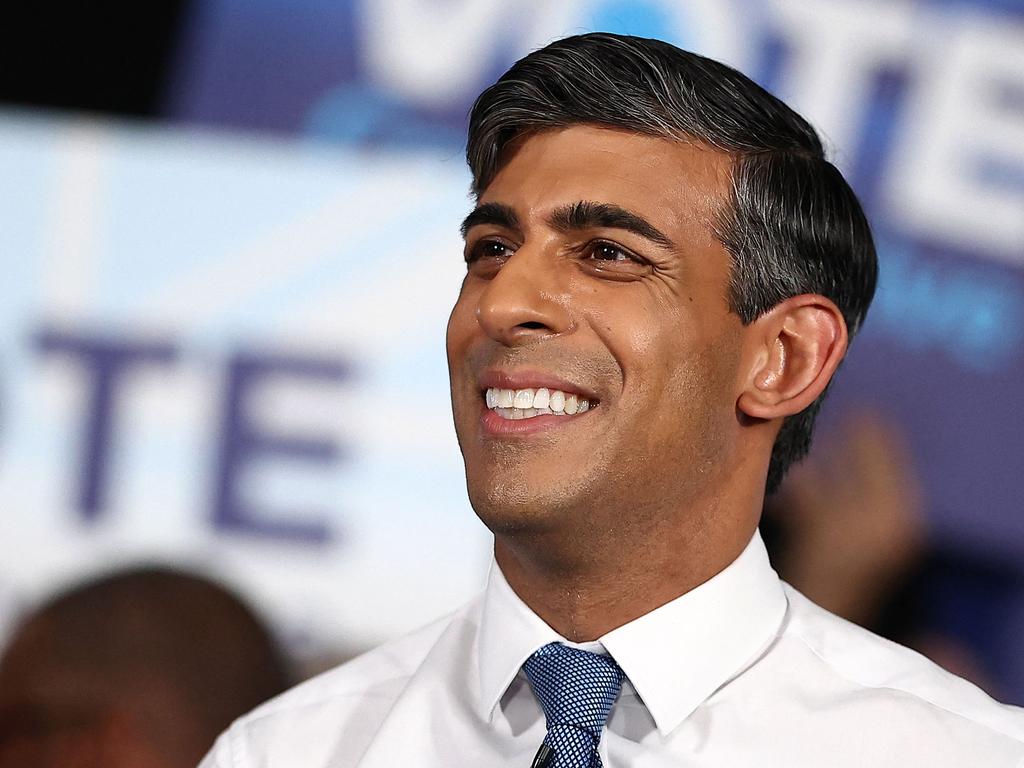


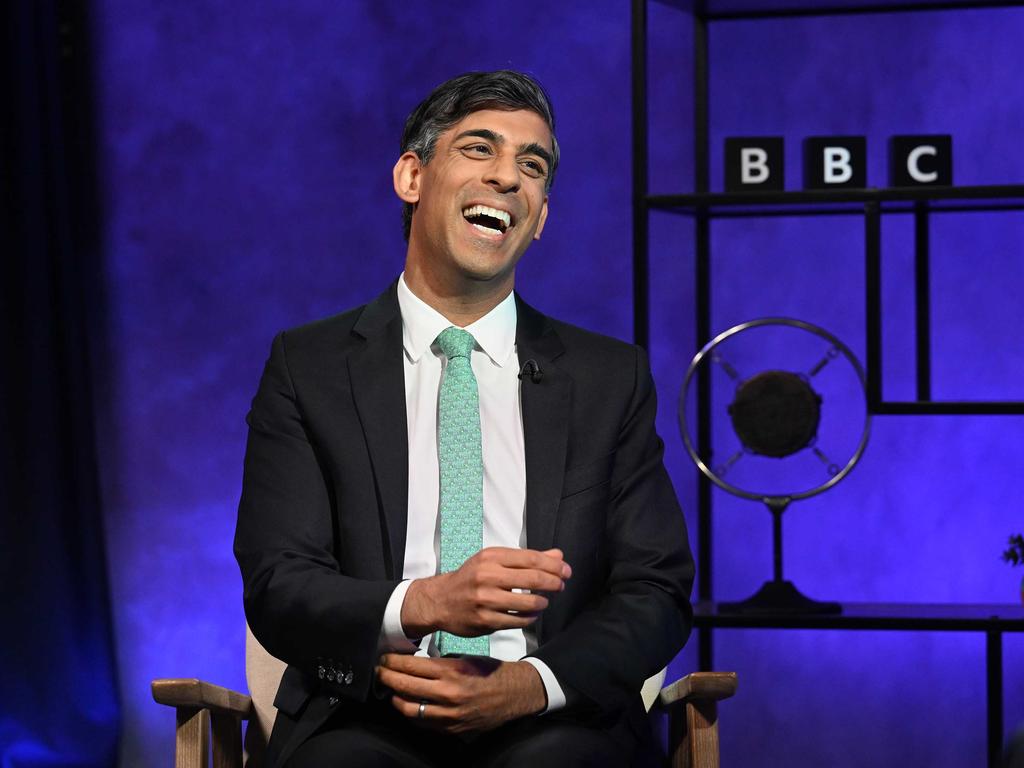


Grant Shapps, Britain’s defence secretary, is usually one of Rishi Sunak’s most ebullient performers. Yesterday morning, however, his tone was far more downbeat as he confirmed a major shift in the Conservative Party’s election strategy.